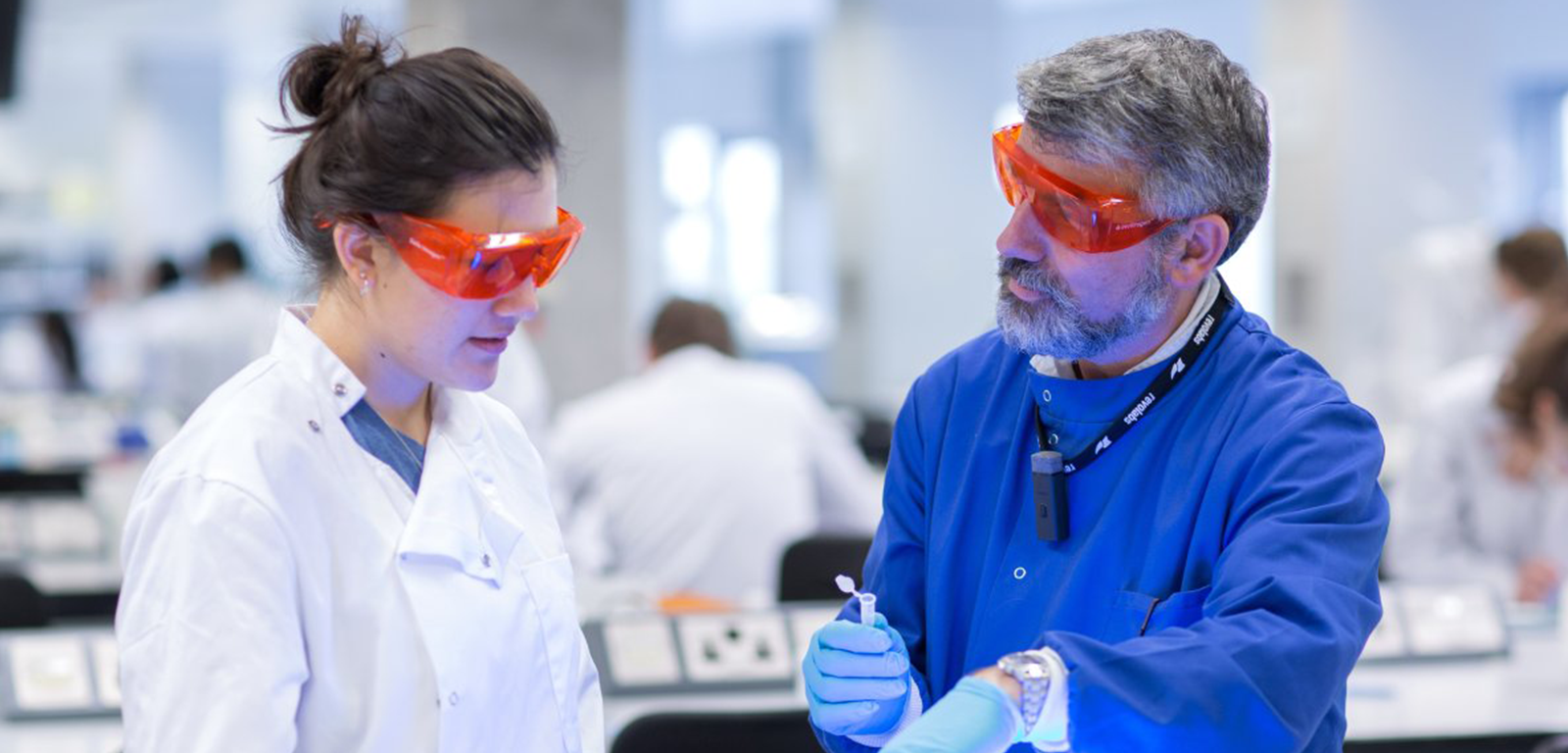

Build on the BSc Biochemistry curriculum with an additional year completing a challenging management programme.
Our biochemistry courses cover all aspects of the applied biochemistry and biotechnology industries, including commercialising technology, entrepreneurship, and intellectual property and patents, with lectures and case studies from business leaders and academics.
This course enables you to study the full Biochemistry curriculum and then spend your third year in Imperial College Business School.
Study programme
All Biotechnology and Biochemistry students follow the same core modules for the first two years, including biological chemistry, molecular biology, integrative cell biology and genes and genomics. This gives you a solid grounding in the fundamental topics, and prepares you for advanced study.
Our teaching is enriched by the Department’s internationally leading research programme, so you’ll be learning at the very cutting edge of the subject. You will also benefit from access to our outstanding facilities, including for genomic and cell biology studies, tissue culture suites and the most modern microscopes.
In your third year you have increased freedom to follow your own interests by choosing from a wide range of optional modules on topics such as synthetic biology, cancer and bioinformatics. You will also complete a substantial project or dissertation.
Your final year is spent in Imperial College Business School, which is triple-accredited by AMBA, EQUIS and AACSB. The core modules including accounting, entrepreneurship and marketing equip you with an understanding of the management of the operating environment of business organisations, and prepare you for a career in management roles.
More information:click here
Year 1
Core modules
Biological Chemistry
Cell Biology
Molecular Biology
Proteins and Enzymes
Year 2
Core modules
Genes and Genomics
Integrative Cell Biology
Fundamentals of Molecular Biochemistry
Protein Science
Tutored Dissertation
Optional modules
Applied Molecular Biochemistry
Challenges in Cell Biology
Topics in Biotechnology
Year 3
Core modules
Science Communication
Laboratory-based research project or literature-based dissertation
Optional modules
You choose one module from each group below.
Group 1
Damage and Repair in Biological Systems
Macromolecules in Three Dimensions
Medical Microbiology
Neuroscience Research
Plant Biotechnology and Development
Stem Cells, Regeneration and Ageing
Group 2
Advanced Topics in Immunity and Infection
Advanced Topics in Parasitology and Vector Biology
Cancer
Integrative Systems Biology
Mechanisms of Gene Expression
Metabolic and Network Engineering
Symbiosis, Plant Immunity and Disease
Group 3
Biodiversity Genomics
Bioinformatics
Biotechnology Applications of Proteins
Medical Glycobiology
Molecular Basis of Bacterial Infection
Synthetic Biology
Systems Neuroscience
Management Year
Core modules
Accounting
Business Economics
Business Strategy
Entrepreneurship
Finance and Financial Management
Global Business Management
Group Project
Innovation Management
Marketing
Organisational Behaviour and Human Resource Management
Sustainable Business Development
Additional modules
These modules are compulsory, but do not count towards your final degree classification.
Accounting Primer
Plagiarism Awareness
Pre-Programme Maths
Study Skills

Life sciences graduates enjoy excellent career opportunities. Many of our graduates go on to study for a higher degree in the field, typically starting with a Master’s degree, followed by a PhD and a career in academic research or industry. Other opportunities for Life Sciences graduates include government and industrial research, public health, and careers in business.
Recent graduates of the Department have become:

Insurance-Single:£300/year